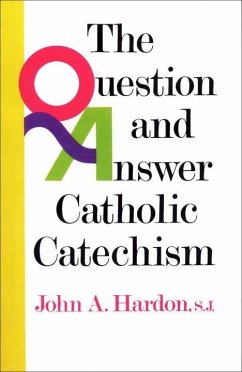
The Atonement and the Modern Mind (eBook, ePUB)
Versandkostenfrei!
Sofort per Download lieferbar
1,99 €
inkl. MwSt.
Weitere Ausgaben:

PAYBACK Punkte
0 °P sammeln!
In "The Atonement and the Modern Mind," James Denney adeptly navigates the complex theological landscape of atonement theory, critically engaging with contemporary thought while rooting his analysis in traditional Christian doctrine. His meticulously structured argumentation reflects a deep understanding of both biblical texts and historical interpretations, presenting a persuasive case for the relevance of atonement in a modern context. Denney's literary style merges clarity with profound theological insight, making esoteric concepts accessible to a broader audience. His exploration of atonem...
In "The Atonement and the Modern Mind," James Denney adeptly navigates the complex theological landscape of atonement theory, critically engaging with contemporary thought while rooting his analysis in traditional Christian doctrine. His meticulously structured argumentation reflects a deep understanding of both biblical texts and historical interpretations, presenting a persuasive case for the relevance of atonement in a modern context. Denney's literary style merges clarity with profound theological insight, making esoteric concepts accessible to a broader audience. His exploration of atonement not only challenges prevailing secular narratives but also reaffirms its significance within the Christian faith, thus placing the work firmly in the tradition of theological reflection that seeks to resonate with modern existential concerns. Denney, a prominent theologian and minister of his time, draws on his extensive background in biblical scholarship and pastoral experience to inform his writings. His upbringing in the Evangelical tradition, combined with a rigorous academic grounding, uniquely positioned him to address the spiritual crises of the early 20th century. By grappling with the intersection of theology and modern thought, Denney illuminates the struggles and joys of faith in an age marked by skepticism and change, providing both personal and scholarly reflections that enrich his theological stance. For readers seeking a thoughtful exploration of atonement within the framework of contemporary beliefs, Denney's work is an essential resource. It encourages theological reflection and dialogue, inviting both scholars and laypersons alike to reconsider the implications of atonement in their own lives and contexts. Engaging with this text not only enhances understanding of Christian doctrine but also challenges readers to reflect on the transformative power of faith in a modern world.
Dieser Download kann aus rechtlichen Gründen nur mit Rechnungsadresse in A, B, BG, CY, CZ, D, DK, EW, E, FIN, F, GR, H, IRL, I, LT, L, LR, M, NL, PL, P, R, S, SLO, SK ausgeliefert werden.













